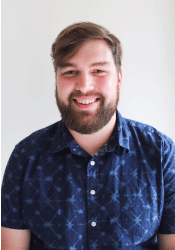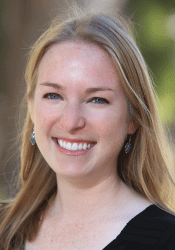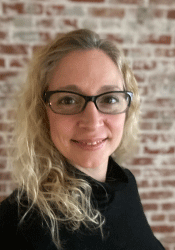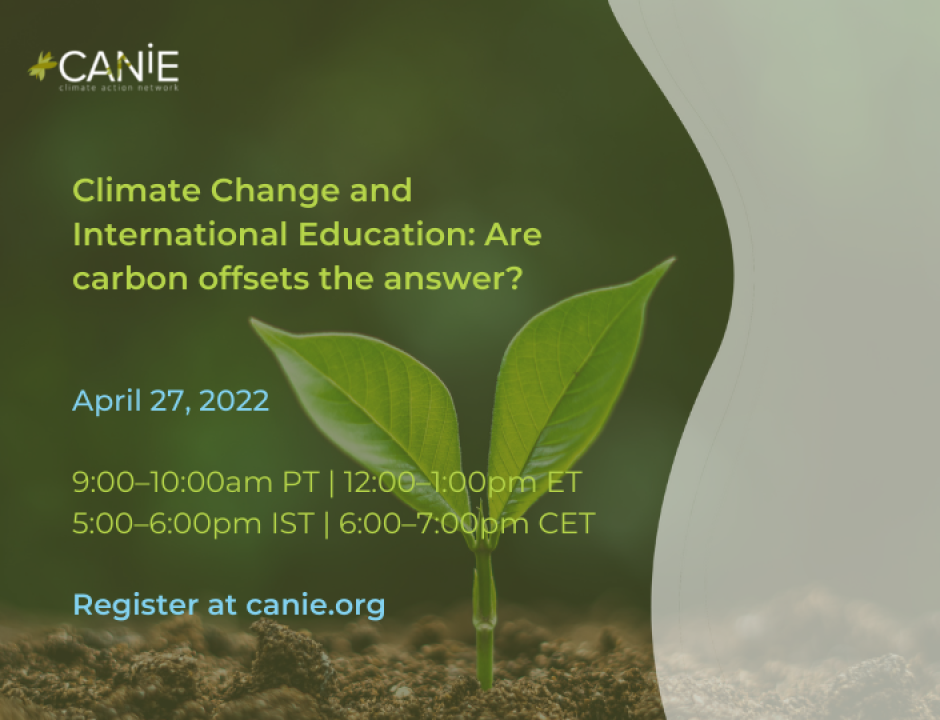Climate Change and International Education: Are carbon offsets the answer?
Join this session to learn more about carbon offsetting and its alternatives through a climate justice lens.
As the international education sector faces the world’s biggest challenge—climate change—it must deal with the proverbial elephant in the room: carbon emissions. As international educators, we understand that immersing students in other cultures is a highly effective way to foster intercultural learning and global citizenship. At the same time, the largest producer of carbon emissions in the travel and tourism industry is air travel, and we place students on airplanes to fulfill our mission. Carbon offsets offer a seemingly easy way to mitigate the damage, but the situation is more complicated, and offsets should be a last resort.
This session is designed for international educators who have a base understanding of the negative impacts of climate change and would like to address it.
Speakers
 | Jake Graff, M.Ed., is a member of the CANIE Climate Justice Working Group. He started working in international education in 2017 in the study abroad office at a small private university in Northeast Ohio, with office programs and initiatives centered on sustainability, which complemented his graduate program focus on social justice. Personal, academic, and work travel to New Zealand, Iceland, and Costa Rica have expanded his interest in sustainable living, climate action, and protecting the environment. In the fall of 2021, Jake joined AIFS Abroad as a Global Program Advisor for Internships. |
 | Amy Marcus, MPA, MA, is Secretary for CANIE Americas and a member of the Climate Justice Working Group. She has worked primarily in student advising, program design, and partnerships at language schools, program providers, and higher education institutions. In her graduate studies at the Middlebury Institute of International Studies, she focused on ecofeminism, interdisciplinary collaboration, social justice, and organizational change. In October 2021 she left international education for HubSpot, where she is working to improve and expand accreditations programming for domestic and international partners. She is also involved in Eco @ HubSpot, helping advance climate action within the organization. |
 | Suzanne Willever, PhD, is a member of the CANIE Climate Justice Working Group and Associate Director for Outreach and Academic Initiatives at Temple University’s Education Abroad & Overseas Campuses office. In that role, she oversees marketing and communications and works on student learning and assessment, as well as her office’s sustainability efforts. Suzanne earned her doctoral degree in art history and believes that everyone can incorporate sustainability practices into their work. She hopes to bring her experience in teaching and learning, as well as marketing, to address this critical issue within international education. Her team has been collaborating with Temple’s Office of Sustainability and recently launched Temple Global Green, an initiative to move toward carbon neutrality by addressing all aspects of their work. |
Agenda
9-10 AM PT/ 12-1 PM ET/5-6 PM IST/6-7 PM CET
Convert to local time here
At the end of this session, participants will be able to:
- define terms related to offsetting and its alternatives
- explain the pitfalls offsetting and its often-unintended consequences through a climate justice lens
- understand the importance of vetting providers
You will also leave the session with ideas for how to implement more effective and meaningful methods of reducing and offsetting carbon emissions at your institution!

